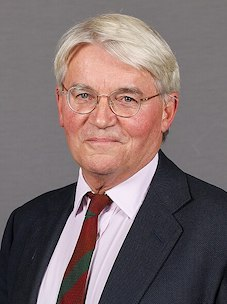Andrew Mitchell
Source: Christian Aid
Christian Aid and Islamic Relief, in partnership with the University of Leeds and the Joint Learning Initiative (JLI), will convene an international conference to explore the role of faith in international development. The Rt Hon Andrew Mitchell MP, Deputy Foreign Secretary, has been confirmed as a speaker at the conference which will take place on 24 April 2024 at Church House, London.
Bringing together a broad spectrum of development practitioners and thinkers both from the United Kingdom and internationally, the conference will meet as the world faces the increasing challenges of the climate crisis and conflict in the Middle East.
It is expected that panellists, including from UNICEF, the All Africa Conference of Churches, and the International Federation of the Red Cross and Red Crescent Societies, will explore the role of religion in the global South and its impact on international development.
Christian Aid and Islamic Relief hope to bridge the gap between faith-based and secular development stakeholders by addressing key issues like gender-based violence, human rights, localisation, peacebuilding, and good governance through a faith-literate lens.
Speaking ahead of the summit, Christian Aid’s Chief Executive Patrick Watt said: “Since the 1990s there has been remarkable progress in human development. But in the last five years the very poorest countries have seen these gains stall, and in some cases go into reverse. The climate crisis, conflict, debt, and economic inequality stand in the way of poverty eradication.
“Faith actors have a critical role to play in meeting these challenges. Often, they can reach the parts other development actors cannot reach. In the poorest parts of the world, it is often mosques, churches, and temples that are most effective in responding to people’s needs. As locally embedded institutions that strengthen people’s voice and agency, they can also sow the seeds for long term systems change.
“With faith playing a major role in the Global South, as illustrated by the ecumenical pilgrimage for peace to South Sudan last year, faith actors must be part of the solution in tackling the defining development challenges of our time.”
Islamic Relief Worldwide’s Chief Executive, Waseem Ahmad, said: “Faith influences the lives of billions of people. If we are to effectively tackle the biggest global issues, we need to better understand the relationship between faith and development. This is especially important as so many of the voices and experiences of people of faith are often unheard or misunderstood.
“In our work around the world we see how local faith leaders drive initiatives to get girls into school, challenge harmful practices such as FGM, or promote peacebuilding and tolerance. We also see how negative practices are sometimes wrongly perpetuated in the name of religion and the important role that development actors can play to tackle this.
“We hope this conference will stimulate debate and explore evidence about the role of faith. We want it to influence governments and policymakers, in the UK and globally, so that faith-based approaches are better integrated into policy that contributes to achieving the Sustainable Development Goals.”

